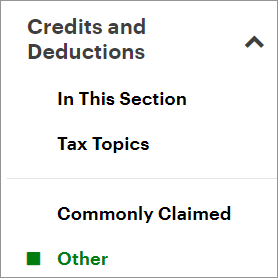T1170: Capital Gains on Gifts of Certain Capital Property
If you donated capital property to a registered charity or another qualified organization, you’ll need to report such donations on the T1170: Capital gains on gifts of certain capital property form.
Depending on the type of capital property you donated, you might not have to include the resulting capital gains in your income for the year (inclusion rate of zero). If, however, there is an advantage to donating your capital property, you may only have to pay taxes on a portion of the capital gain at a rate of 50%. For donations of ecologically sensitive land to private foundations before March 22, 2017, the tax exemption doesn’t apply.
Refer to the P113 Gifts and Income Tax Guide for more information on the taxing of gifts of certain capital property.
There are many different types of property that you can donate, each of which should be reported on your T1170. These properties can include:
- A share, debt obligation, or right listed on a designated stock exchange
- A share of the capital stock or a mutual fund corporation
- A unit of a mutual fund trust
- A prescribed debt obligation
- An interest in a related segregated trust fund
- Ecologically sensitive land (including a covenant, easement, or if your land is in Québec, a real servitude)
Follow these steps in H&R Block’s 2025 tax software:
- On the left navigation menu, under the Credits & deductions tab, click Other.

- Under the POLITICAL CONTRIBUTIONS AND CAPITAL PROPERTY DONATIONS heading, select the checkbox labelled Capital gains on gifts of certain capital property (T1170), then click Continue.
- When you arrive at the Capital gains on gifts of certain capital property page, enter your information into the tax software.
- What were your proceeds of disposition from the donation? - If you donated capital property during the year, your proceeds of disposition are considered to be equal to the fair market value (FMV) of the property. FMV is the highest dollar value you would get for the property, if you decided to sell it, in an open and unrestricted market.
- What’s the adjusted cost base? – The adjusted cost base (ACB) is the cost of the property you donated plus any expenses you paid to acquire it (such as commissions and legal fees).
- What’s the eligible amount of your gift? – The eligible amount of your gift is the amount by which the fair market value (FMV) of the gifted property is more than the amount of an advantage, if any, that you received for the gift. An advantage is the total value of any property, service, compensation, use or any other benefit that you are entitled to for your gift.
- What’s the face value? – The face value is generally the value of the security (such as bonds) stated by the issuer.
- What were your proceeds of disposition from the donation? – If you donated capital property during the year, your proceeds of disposition are considered to be equal to the fair market value (FMV) of the property. FMV is the highest dollar value you would get for the property, if you decided to sell it, in an open and unrestricted market.
- What’s the adjusted cost base? – The adjusted cost base (ACB) is the cost of the property you donated plus any expenses you paid to acquire it (such as commissions and legal fees).
- What’s the eligible amount of your gift? – The eligible amount of your gift is the amount by which the fair market value (FMV) of the gifted property is more than the amount of an advantage, if any, that you received for the gift. An advantage is the total value of any property, service, compensation, use or any other benefit that you are entitled to for your gift.
- What’s the address or legal description of the land? – This is the address or the legal description of the property location based on a land survey such as a township survey, district lot, etc.

